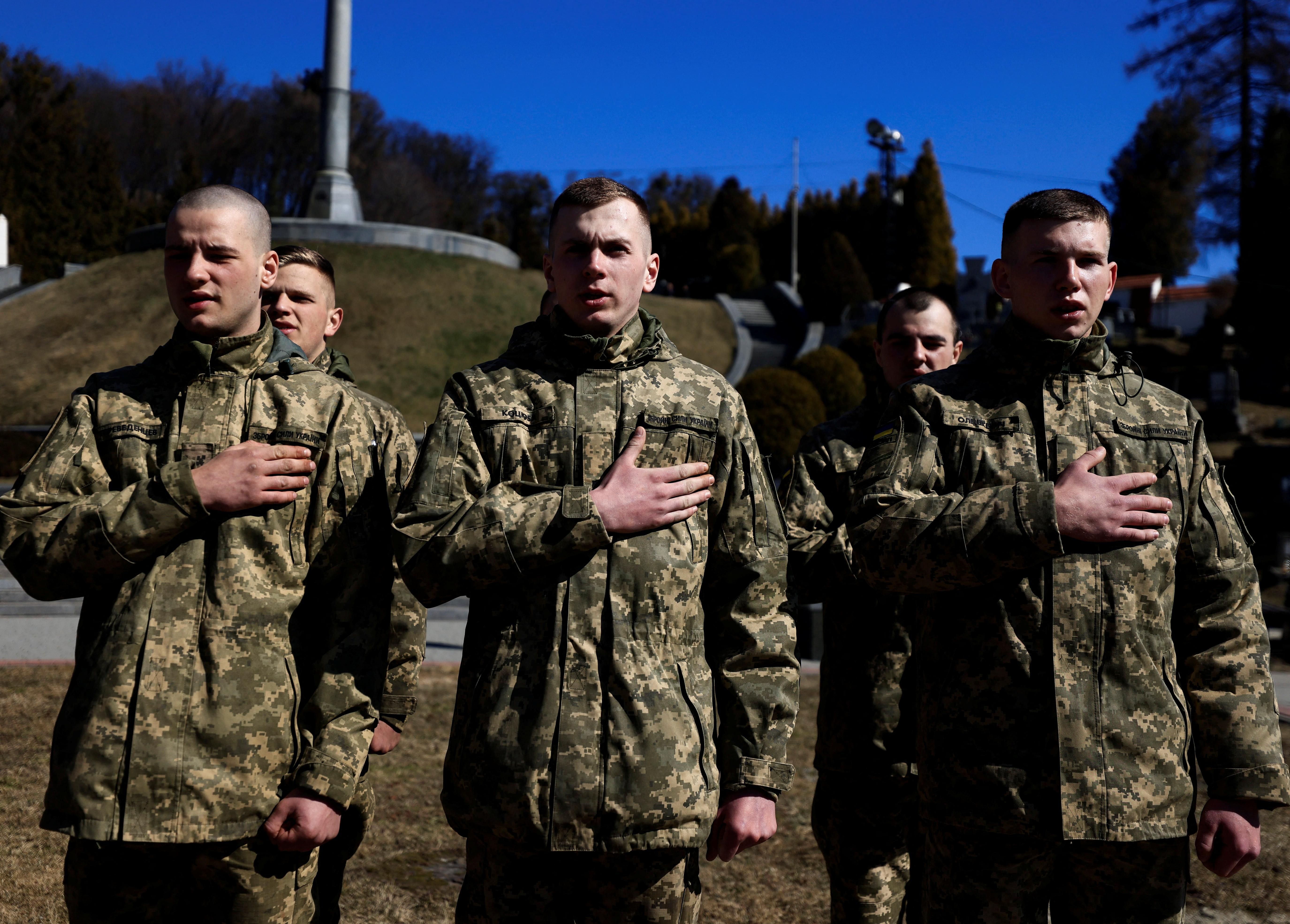What We're Watching: Ukrainian war morale, Nicaraguan opposition crackdown, Sinai summit
“On the brink of surviving war”
In wartime, all battlefield reports must be treated with large doses of skepticism. All of them. Propaganda and the “fog of war” are powerful forces. We do know that Russia’s military has captured very few of its most strategically important targets. To varying degrees, Ukraine’s largest cities have suffered terrible, lasting damage and a substantial number of both military and civilian casualties. In addition, a Russian media outlet reported on Monday that the country’s Defense Ministry has acknowledged that 9,861 Russian soldiers have been killed in Ukraine in the past month. If true, that’s more than the number of American soldiers killed during the entire wars in Iraq and Afghanistan combined. (That report, which can’t be verified, was quickly pulled down, but it squares with Western intelligence estimates.) We’ve already written in Signal about the various problems, including low morale, that may be plaguing Russian soldiers.
What about Ukraine’s soldiers? Not only has Russia’s advance toward Kyiv stalled, but Ukrainians appear to have retaken the offensive in some areas. “Despite heavy fighting, Ukrainian forces continue to repulse Russian attempts to occupy the southern city of Mariupol,” UK defense officials say. The city has faced some of the most intense bombardment of the war. Rather than retreating to defend Kyiv, Ukraine appears to be mounting counteroffensives to challenge the gains Russia has made. Other governments continue to supply Ukrainian fighters with valuable weapons. “We are on the brink of surviving war,” Ukraine’s President Volodymyr Zelensky told Italy’s parliament on Tuesday.
In short, if Ukrainian soldiers – and civilians – begin to believe, rightly or wrongly, that they can successfully repel Russia’s invasion, they will continue to fight aggressively, raising the human and material costs of the operation for Russia.
Ortega vs Chamorros in Nicaragua
Nicaraguan opposition leader Cristiana Chamorro was sentenced on Monday to eight years behind bars for financial crimes related to her media foundation. She was also found guilty of promoting “ideological falsehood” — which in the Central American country is code for saying things strongman President Daniel Ortega doesn’t like. There’s a backstory here: Ortega has a chip on his shoulder with the Chamorros because Cristiana’s late mom Violeta Chamorro beat him in the 1990 presidential election. What's more, her dad — assassinated in 1978 — was a hero of the resistance to the brutal Somoza dictatorship — which a young Ortega fought a guerrilla war against in the 1970s. Going after his critics is nothing new for Ortega, and arresting Chamorro several months ago prevented her from challenging him in last November’s “election.” Still, the lengthy prison term is a big blow to the opposition, who saw Chamorro as the best hope to someday get rid of Nicaragua’s authoritarian leader.
